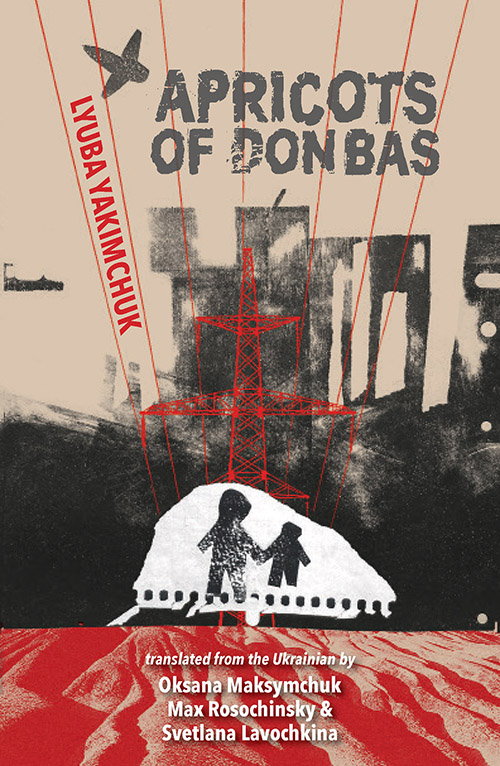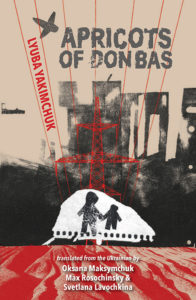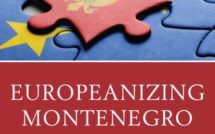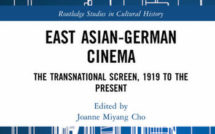
Apricots of Donbas by Lyuba Yakimchuk (translated by Oksana Maksymchuk, Max Rosochinsky, and Svetlana Lavochkina)

This is part of a series on the Ukraine Crisis.
Lyuba Yakimchuk was eleven years old in 1996, when her hometown of Pervomaisk in the Donbas region of Ukraine became the site of a major celebration of nuclear disarmament and peace between Russia, Ukraine, and the United States. Top military officials from all three nations scattered sunflower seeds “to insure [sic] peace for future generations.”[1] The daughter of a coal miner and a conveyor belt operator, Yakimchuk was a published poet before the Russian army invaded nearby Luhansk in April 2014. Many of the poems in Apricots of Donbas appeared in 2015’s Abrykosy Donbasu, when, as she explains in the English language introduction, the war started “in my yard, in the house I grew up in. My mom and my dad live here, and on the street nearby, my grandmother lives in her own little house.”[2] Traveling that spring from her home in Kyiv to visit her sister in Luhansk, Yakimchuk remarks matter-of-factly that she speaks only Russian in public now, fearful that she will be labeled a collaborator with Ukrainian nationalists and be “sent to ‘the cellar’—an illegal prison indeed located in a cellar, where the captives are tortured.” Yet in these masterful translations, Yakimchuk’s poems are anything but dispassionate. Besides wrestling with the unavoidable—violence, rape, fear, rage, flight—Yakimchuk’s voice is most moving when she probes the tedium and small indignities of war and peruses the perimeters of language to capture those absurdities before they disintegrate, or, in her words, “decompose.” The contrast between the Donbas’ ragged cityscapes, smoking coalmines, and hard-bitten men and women and its fragile natural beauty, crystalized in the sweet golden-yellow fruit of the book’s title, is another of Yakimchuk’s hallmarks. Also striking is her use of Christian religious imagery and references to the region’s ancient Cuman and Trypillian cultures. Finally, Yakimchuk’s raw, often tender jibes about contemporary Ukrainian gender stereotypes underscore how she, her family, and friends have been changed, certainly damaged, but not undone by years of brutal war.
The volume has five sections: Apricots of Donbas, Yum and War, Decomposition, Unfree Verses, and Such People Are Called Naked. The poems are not strictly chronological. The nine poems in “Yum and War” appeared in 2009 and feature a fictional baby son, Yum, and his bellicose antics, which eerily presage the conflict still raging today. In “making up the enemy,” Yakimchuk speculates that her town’s “unkissed pavements/and unkissed maidens/could not fall/under the rubber boot of the enemy/under the rubber tires of the enemy… Yum rubs together his little hands, delighted/for he invented the enemy/he made it all up/grown-ups search for his invention/…as if they’re playing hide-and-seek/and their turn to hide never comes.”
These poems also showcase Yakimchuk’s sly sense of humor as in, “without milk/coffee keeps for a long-long time, just like me/I don’t sleep at night, watching TV instead of dreams/in a jar of a room I stir the nights with the hands of a clock.”[3] Pondering on why she receives no letters, especially from her grandmother Maria, “who liked to write in large letters/on sheets lined with rain,” Yakimchuk is nonetheless grateful to “my mailwoman/[who] usually only delivers a state pension/but the sweet being she is/she started writing to me/the world’s last apostle/who knows all the letters.”[4]
In the poems that comprise “Apricots of Donbas,” Yakimchuk conjures up a decaying, mythic industrial landscape pockmarked with depleted coal mines and filled with “the poisoned waters/of the sumps/where the broth is dumped/from this borscht of mine.[5] In “apricots in hard hats,” twenty young men hang suspended in a steel cage “like in Noah’s Ark/after deluge/a ton of concrete/crashed on the cage/they fell out/in free fall/broke free/yes, free/like uprooted/apricot trees… and now grannies tell/their grandkids a tale/of apricots wearing hard hats.” Yakimchuk ends this cycle with “grandmother’s fairy tale,” where the (feminine) coal mine, “this ebony beauty,” is thrice violated by a man whose hands capture nothing but tears, salt, and coal, until she finally “pulled him down to the bottom/of the underground sea/apricot trees stretched their hands to the sky/apricots put on hard hats, yellow-hot/and now when you eat apricots/you find coals inside/end of the tale.”
Decomposition’s eighteen poems are the book’s heart and contain some of Yakimchuk’s best-known work. Here, her tone ricochets between a frayed weariness of waiting and wondering, claustrophobia, despair, panic, and dark humor. Yakimchuk repeatedly and forcefully interrogates the adequacy of language to communicate emotions. Here, cities are alive, wounded and in pain, straitjacketed, “the sleeves of rivers/tied into a tight knot”[6] while fellow citizens—friends, neighbors, family, officials—are putrid, drunk, distracted, incapacitated. In “decomposition,” she plays with the syllables of place names, and her own name, as if they were outlandish building blocks: “don’t talk to me about Luhansk/it’s long since turned into hansk/Lu has been razed to the ground/to the crimson pavement/my friends are held hostage/and I can’t reach them, I can’t do netsk/to pull them out of the basements/from under the rubble…I have gotten so very old/no longer Lyuba/just a ba.” But wonder also finds a home in these poems. In “gathering,” Yakimchuk envisions a world where “water will give birth to a sea/new and alive/the sea will give birth to new creatures/not people though/and they’ll swim like fish/to places where there is no more need of humans.” In “not a receipt, but a poem,” she invites readers to inspect a printed receipt from a local grocery chain, where the purchase of nectarines is followed by a machine-generated “fortune for you: be love,” which is underlined, perhaps by the cashier. Yakimchuk’s bursts of levity make her longing for home even more poignant. “the return” begins simply: “we want back home, where we got our first grays/where the sun pours into windows in blue rays/where we planted a tree and raised a son/where we built a home that grew moldy without us,” and ends with an undeterred obstinacy to keep dreaming: “we will walk back, even with bare feet/if we don’t find our home in the place where we left it/we will build another one in an apricot tree/out of luscious clouds, out of azure ether.”
In the volume’s penultimate section, Unfree Verses, Yakimchuk ventures unreservedly into the surreal, where prosaic objects, places, conversations, and occurrences confront powerful forces of destruction and renewal. In “ashtray,” memories of home are evoked by family and “vegetables in the fridge,” but home is “now—a big/sooty/ashtray/for a god/who inhales the smoke/and lets fruit flies out of his mouth.” A “huge snowflake, a boule de neige” causes a fatal traffic accident in “mechanisms of snow.” This boule de neige, with its innocuous connotations of snow globes, pastries, and cultivars of fragrant flowers, splits an unnamed pedestrian’s skull that had endured “three fields of war, survived/three great fires, but never saw/anything like this… must be hard to be the police/when state laws are broken/even by snow.” Yakimchuk imagines an apricot tree as a refugee in “asylum, a dance.” The tree “waves her arms,” apricots are “golden sequins” that rustle when she frolics “like thousands of children armed with bells.” The farm animals have all fled, “even the hen departed in a truck” and meanwhile “she stands all alone by a slag heap/and when the wind comes/she does her wild moves/as if she’s ready to uproot herself, to fly/away—to a better place.”
Yakimchuk’s playful sense of humor suffuses the ten poems in the volume’s final installment, Such People Are Called Naked, as she grapples with the uncomfortable intimacies of human relationships and her fascination with language and the work of writing “high-minded gilded poems.”[7] In “unshaven leg” the narrator pokes fun at herself for forgetting to shave one of her legs, “one leg is feminist and hairy indeed/but the other one is patriarchal and silky, it really is.” In “such people are called naked,” Yakimchuk makes light of lovemaking amid constant interruptions, one from a mother urging, “have some fruit compote,” and a grandmother exclaiming “I knew it! You’re not a virgin anymore… I’m still a virgin, nan/and will remain untouched forever.” A conversation with a friend becomes casually contentious in “neither pea nor peanut” as Yakimchuk laments that “language never keeps up with life/adapts way too slowly/learns to curl its fingers/but does not grow interdigital webbing/as humanity gradually turns to veganism/language remains carnivorous.” In Apricots of Donbas’ final poem, “one’s own immortals,” Yakimchuk grows meditative, as she ruminates about her family’s, and her own human health and frailties. Gamely, she reassures herself and us, that, “in the end, giving in to helplessness/also equals death/for death is weak/if you measure it with a word/as long as the language is sound.” Believing in immortality, against all evidence to the contrary, is both her family’s bequest to her and Yakimchuk’s, in turn, to her readers: “ours is life eternal/and the child listens.”
Despite the anguish and homesickness that pervade the poems in this collection, Lyuba Yakimchuk’s keen attention to the humble, the absurd, the everyday, and the sensuous illuminates the entire volume. If sunflowers indeed do end up expatriating former missile sites together with Ukraine’s destroyed cities and poisoned landscapes, doubtless she will be there to ensure we don’t miss it.
Elizabeth B. Jones is Professor Emerita of German and European history, Colorado State University. Her scholarship covers all aspects of rural Germany, with emphasis on the nineteenth and early twentieth centuries. She currently lives in Corvallis, Oregon and works with several community non-profits devoted to social and environmental justice and looks after a small forest.
Apricots of Donbas
By Lyuba Yakimchuk (translated by Oksana Maksymchuk, Max Rosochinsky, and Svetlana Lavochkina)
Publisher: Lost Horse Press
Paperback / 166 pages / 2021
ISBN: 9781736432310
References
[1] Jane Perlez, “Sunflower Seeds Replace Ukraine’s Missile Sites,” New York Times,
June 5, 1996.
[2] Lyuba Yakimchuk, Apricots of Donbas (Sandpoint, ID: Lost Horse Press, 2021), 23.
[3] Ibid., “stirring the nights,” 57.
[4] Ibid., “letters don’t come”
[5] Ibid., “the terricones of breasts,” 43.
[6] Ibid., “robe of a city,” 75.
[7] Ibid., “decomposition,” 85.
Published on February 21, 2023.




